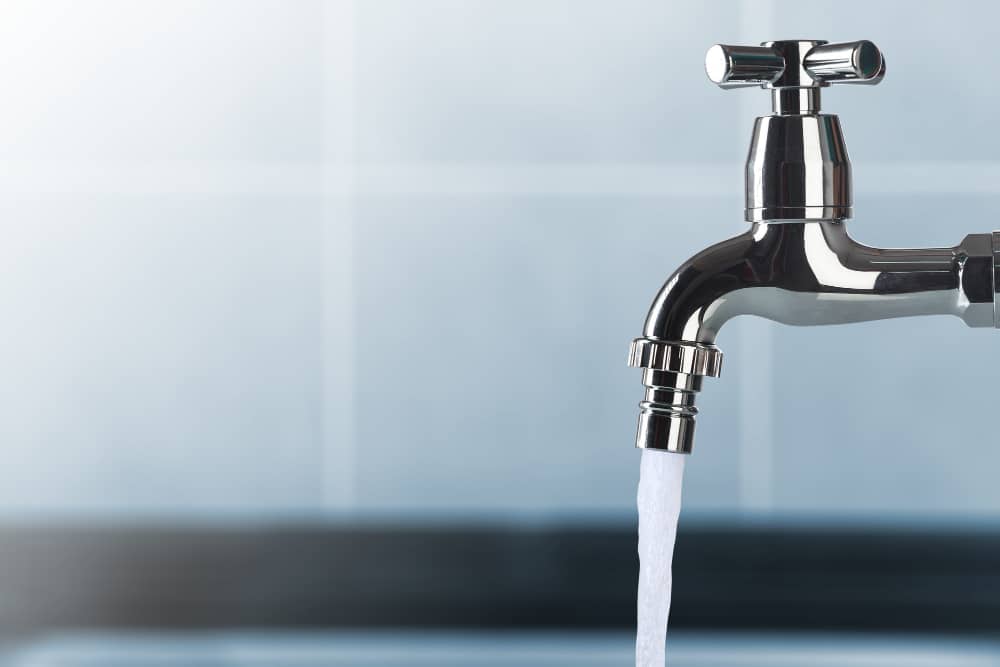Did you know that hard water is present in more than 85% of households? If your household is included in this percentage, then here are some awesome ways to manage your water issues!

Install a Faucet Water Softener
Probably one of the most cost-effective ways to manage hard water issues is to install a faucet water softener. There are many faucet water softeners available on the market. For instance, electronic water descalers can effectively solve a multitude of water quality issues, including hard water. With hundreds of research hours, the water quality improvement technology has reached the highest levels so far and can be easily brought right to your faucet. What is more, it is super easy to install and on top of that rather cheap.
In general, there are many different types of softening systems. For instance, there are many types on the market that use sodium or potassium chloride. Using these methods, the process of water softening achieved this way is often named ion exchange due to the crystalline substances that are used. This process takes place the moment the water from the pipes reaches the softener.
Easy-To-Follow Guide About Hard Water
As a consequence, the mineral ion complex in the water changes and turns into a chloride ion complex as a result of the softener effects. Lastly, the substances, i.e., the minerals from the target water remain in the softener. Due to this, there are no longer minerals in your water that make it hard, which means you get soft water as the end product. This whole process goes rather fast, is quite simple, and you get the desired results.
Boil the Hard Water
The water that comes out of your faucets is hard due to multiple reasons. However, one of the main reasons behind the hard water you get is the fact that it contains calcium bicarbonate. Nevertheless, you can solve this issue by boiling the water. Boiling will do the job since it precipitates the dissolved minerals out of the water.
Boiling forces the dissolved minerals out of the water. Therefore, as the boiling process is capable of getting rid of the calcium content in the water, the end result is soft water in your glass. Exactly because of this, boiling is considered to be one of the simplest and cheapest ways to swiftly solve hard water issues. Nonetheless, this whole process can sometimes be time-consuming given the fact you will have to heat the water to the boiling temperature, wait for some time while it boils, and then wait until the water cools. All this is not really free of charge since you will need electricity if you don’t have any other source of heat.
For this reason, boiling is best for some temporary and single uses, but using it every day may be inconvenient to some. In addition, it should be mentioned that the act of boiling cannot always make all of your water soft, and it is not capable of removing some minerals and substances, such as calcium sulfate, for example.
Distilled White Vinegar
Distilled white vinegar is one of the ways you can also try in order to solve the hard water issues. Since calcium is one of the substances that make water hard, it needs to be neutralized in order to get softened water. To that end, vinegar can come in handy. How?
First, it should be made clear that calcium is alkaline, which means its pH level is above 5.5, in this case, it is about 7. On the other hand, vinegar is rather acidic, and this means its pH level is low, in this case, it is about 2.5. It is due to this discrepancy of pH values that the two are neutralized and achieve a rather balanced pH level. This results in softer water.
Naturally, this way of making your water soft is reserved for uses other than consummation. For instance, you can use vinegar-softened water for cleaning purposes, but not for drinking.
Magnetic Conditioner
Magnetic water conditioners are perfect if you do not require fully soft water. This is because they cannot absolutely soften it, but can make it soft to a certain extent. Nevertheless, if your household has only slightly hard water, then it is perfect.
How do they work?
Magnetic water conditioners are connected to your water pipeline which allows them to alter the properties of the water due to the magnetic field. This will separate the mineral ion in the water and make it softer.
If you are determined to solve the hard water problems and make it softer and cleaner, then make sure you follow some of the useful pieces of advice from the list!

